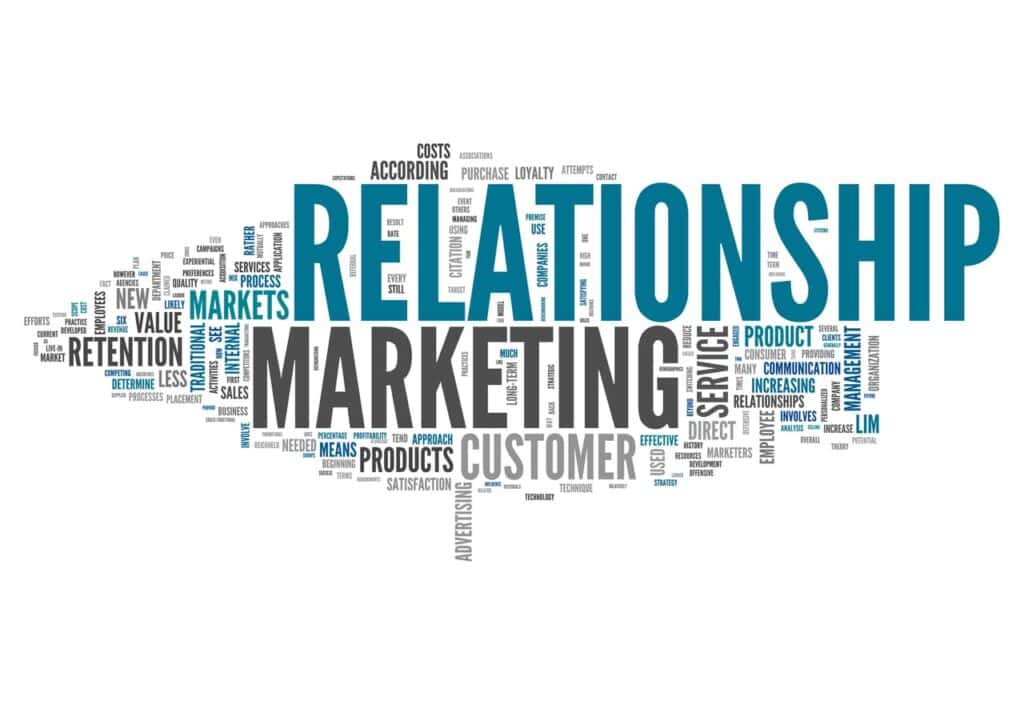In sales, establishing credibility is paramount to success. Customers want to do business with someone they can trust.
Building credibility not only paves the way for a successful transaction but also fosters long-term relationships with clients. In this blog post, we will discuss effective strategies that sales professionals can utilize to demonstrate to customers that they are reliable, knowledgeable, and trustworthy.
- Key Takeaways:
- Building credibility in sales begins with establishing trust with customers, essential for successful sales relationships.
- Customers value honesty and transparency, so avoid misleading claims and be authentic in all interactions.
- Demonstrate your expertise and knowledge in your product or service, and be ready to answer questions and offer insights.
- Sharing positive feedback from satisfied customers through testimonials and reviews helps build trust and credibility.
- Keep your promises and deliver on commitments to show customers they can rely on you and strengthen your credibility.
1. Establishing Your Expertise
This means demonstrating a deep understanding of your product and the broader industry.
It involves being well-informed and prepared to share insights that add value to customer interactions.
Benefits of Establishing Your Expertise in Building Credibility in Sales
- Enhances trust
- Addresses concerns
- Tailored solutions
- Meaningful conversations
- Thought leadership
- Informed guidance
- Demonstrates dedication
- Increases loyalty
When establishing your expertise, it’s crucial to continuously update your knowledge and understand the evolving needs of your customers. This ensures that your advice and solutions remain relevant and impactful.
Utilize learning platforms, industry newsletters, and CRM tools to stay informed and track customer interactions effectively. Let’s explore some actionable tips to effectively establish your expertise in the field.
a. Continuous Learning
Invest time in continuous learning to stay abreast of the latest product features, industry trends, and customer preferences. Use online courses, webinars, and industry conferences to deepen your knowledge.
This ongoing education keeps you informed and ensures that you can confidently discuss any aspect of your product and the industry.
b. Share Valuable Insights
Regularly share insights and valuable content with your customers through newsletters, blogs, or social media. This helps position you as a thought leader and a go-to source for information.
Make sure the content is relevant, timely, and solves common customer problems, reinforcing your role as an expert.
c. Customer Feedback Loop
Create a feedback loop with your customers to understand their needs and how well your solutions meet them. Use surveys, customer interviews, and feedback sessions to gather insights.
This approach not only demonstrates your commitment to their success but also helps refine your expertise based on real-world applications.
d. Networking and Collaboration
Engage in networking with other professionals and participate in industry groups or forums.
Collaboration with peers and industry leaders can provide new perspectives and insights, further enhancing your expertise. Plus, it helps build a network of resources you can draw upon to solve unique customer challenges.
e. Personalized Consultations
Offer personalized consultations or demonstrations to show how well you understand the product and the customer’s needs. During these sessions, listen carefully, ask insightful questions, and tailor your advice to the specific context of the customer.
This personalized approach demonstrates your expertise and builds a deeper trust and connection with the customer.
2. Creating Personal Connections
This means being authentic and transparent in your interactions with customers to foster trust and rapport.
It involves engaging in sincere communication, actively listening to their needs, and responding with genuine interest and tailored solutions.
Benefits of Creating Personal Connections
- Fosters trust
- Enhances reliability
- Promotes honesty
- Strengthens rapport
- Improves communication
- Ensures sincerity
- Deepens understanding
- Boosts loyalty
When creating personal connections, it’s essential to consistently show empathy and respect for the customer’s perspective. Maintain a balance between professional conduct and personal engagement to make every interaction meaningful and impactful.
Leverage CRM systems and communication tools like video conferencing to personalize interactions and track customer preferences effectively.
Let’s dive into actionable tips that can help you enhance personal connections with customers, strengthening your credibility.
a. Active Listening
Practice active listening by fully focusing on the customer during conversations. Reflect on their words, clarify their concerns, and show that you value their input.
This approach helps in understanding their needs better and demonstrates your commitment to providing solutions that genuinely address their challenges.
b. Personalized Communication
Tailor your communication style to match the preferences and personalities of your customers. Use their preferred communication channels, whether it’s email, phone, or face-to-face meetings, and adjust your tone and approach accordingly.
This personal touch shows that you respect their preferences and are dedicated to making the interaction comfortable and productive.
c. Transparency and Honesty
Always be transparent about the capabilities and limitations of your products or services.
Honesty in discussing potential challenges or limitations builds trust and prevents misunderstandings. It shows that you prioritize the customer’s best interest over making a quick sale.
d. Follow-Up and Consistency
Maintain consistent follow-up with customers to demonstrate your reliability and commitment to their satisfaction.
Use scheduled check-ins, updates on new developments, or simply reach out to ask about their experience with your product. This regular communication nurtures the relationship and shows that you care about their long-term success.
e. Empathy and Understanding
Show empathy by acknowledging the customer’s feelings and perspectives. Whether they are facing challenges or celebrating successes, respond with genuine empathy and offer support or congratulations as appropriate.
This emotional connection makes the customer feel seen and supported, further solidifying your role as a trusted advisor rather than just a salesperson.
3. Leveraging Social Proof and Testimonials
This means using positive reviews, success stories, and customer feedback to show potential clients the value and reliability of your products or services.
This approach demonstrates that others have had positive experiences, influencing new customers to trust and choose your brand.
Benefits of Leveraging Social Proof and Testimonials
- Enhances trust
- Shows reliability
- Increases conversions
- Boosts website traffic
- Demonstrates value
- Influences decisions
- Validates quality
- Encourages loyalty
When leveraging social proof and testimonials, ensure that the feedback is authentic and represents a wide range of customer experiences. It’s also important to update testimonials regularly to reflect the current state of your product or service.
Use review management software and social media analytics tools to gather, organize, and display customer testimonials effectively.
With the importance of social proof and testimonials established, here are some practical steps to effectively leverage them in your sales strategy.
a. Collect and Curate Testimonials
Actively collect testimonials from satisfied customers through surveys, direct requests, or incentivized programs.
Choose a diverse range of testimonials that highlight different aspects of your product or service, ensuring they are genuine and resonate with various customer segments.
Display these testimonials prominently on your website, in marketing materials, and during sales presentations to reinforce the credibility of your offerings.
b. Feature Success Stories
Develop and share concise success stories that demonstrate how your product or service has solved specific problems for customers. These stories should include details such as the customer’s challenge, the solution provided, and the results achieved.
Use these stories in various formats, including case studies, video testimonials, and blog posts, to provide potential customers with relatable and compelling evidence of your effectiveness.
c. Utilize Social Media Platforms
Regularly post customer testimonials and success stories on your social media channels to engage with a broader audience.
Use features like stories, highlights, and pinned posts to ensure these testimonials are visible and accessible.
Engaging with comments and shares on these posts can further amplify the positive impact and reach of your social proof.
d. Integrate Testimonials in Marketing Campaigns
Include testimonials in your email marketing, digital ads, and promotional materials. This integration helps create a cohesive message across all channels, reinforcing the positive experiences of your customers.
Tailor the testimonials used in each campaign to the target audience to maximize their impact and relevance.
e. Monitor and Respond to Online Reviews
Actively monitor online reviews on platforms like Google, Yelp, and industry-specific sites.
Respond to both positive and negative reviews professionally and constructively to show that you value customer feedback and are committed to continuous improvement.
This responsiveness not only enhances credibility but also demonstrates your dedication to customer satisfaction and service.
4. Consistency and Reliability
These mean delivering on promises, meeting deadlines, and providing accurate information to build trust with customers.
Such practices ensure that every interaction reinforces the sales professional’s credibility and strengthens customer relationships.
Benefits of Consistency and Reliability in Building Credibility in Sales
- Enhances trust
- Establishes dependability
- Encourages repeat business
- Increases referrals
- Strengthens relationships
- Ensures satisfaction
- Builds loyalty
- Promotes transparency
When focusing on consistency and reliability, it’s crucial to maintain open communication and set realistic expectations that you can meet or exceed.
Regularly evaluate and adapt your processes to ensure that you’re always delivering on your commitments and maintaining a high standard of service.
Utilize project management software and customer relationship management (CRM) systems to track commitments, deadlines, and customer interactions efficiently.
Now, let’s explore actionable tips to enhance consistency and reliability in your sales processes.
a. Set Clear Expectations
Begin each customer interaction by clearly outlining what can be expected in terms of product performance, service timelines, and support. This transparency helps prevent misunderstandings and sets a foundation for trust.
Regularly review these expectations with your customers to ensure they are still aligned with their needs and any changes in the market or your offerings.
b. Regular Communication
Maintain a schedule of regular updates and check-ins with your customers, whether through email, phone calls, or in-person meetings.
This consistent communication keeps customers informed about the status of their orders, any changes in services, or updates to products. It also provides an opportunity to address any concerns they may have promptly, reinforcing your commitment to their satisfaction.
c. Follow Through on Promises
Ensure that every promise made to a customer is fulfilled on time and to the best of your ability. If unexpected delays or issues arise, communicate these changes immediately and provide alternative solutions.
This approach not only mitigates frustration but also demonstrates your dedication to their interests and your reliability in handling challenges.
d. Seek and Act on Feedback
Proactively ask for customer feedback on your products and services and use this information to make improvements. This feedback loop shows that you value their opinions and are committed to meeting their needs better.
It also provides opportunities to address any areas where consistency or reliability may be lacking, further enhancing your credibility.
e. Deliver Exceptional Customer Service
Train yourself and your team to go above and beyond in every customer interaction. This could mean being available to answer questions, resolving issues swiftly, or providing personalized recommendations based on their history and preferences.
Exceptional service creates positive experiences that customers remember and share with others, reinforcing your reputation as a reliable and consistent partner.
Final Thoughts | Building Trust, Closing Deals
Building credibility in sales is not just a goal; it’s the foundation of successful customer relationships and the key to closing more deals.
By demonstrating unwavering integrity, deep expertise, and steadfast reliability, sales professionals can forge strong bonds with customers, making them more likely to return.
Prioritizing the customer’s needs, maintaining transparency in every interaction, and consistently delivering on promises are the pillars that uphold your reputation as a trustworthy salesperson.
Consider investing in field sales management software to enhance these efforts and ensure every customer feels valued and understood. This tool streamlines your processes, keeps you organized, and ensures you never miss a beat in serving your clients.
Click here to explore how this software can transform your sales strategy and keep you at the top of your game.




